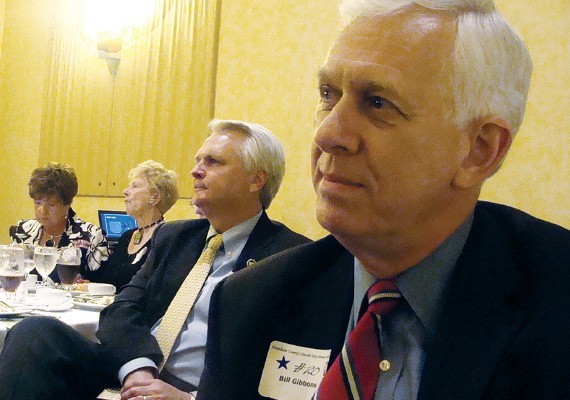Bill Gibbons, the current commissioner of the Tennessee Department of Safety and Homeland Security and a former Shelby County district attorney general, will soon join the Public Safety Institute at the University of Memphis to lend his expertise to the study of protecting the public. He’s also re-taking the helm of the Memphis Shelby Crime Commission — a post he held until he joined state government in 2011.

Some see Gibbons’ imminent return as an encouraging move to combat rising violent crime. But it is abundantly clear to me that the prescriptions advocated by Gibbons and other members of the Memphis Shelby Crime Commission, dating back to the 2006 inception of Operation Safe Community (OSC), have done little if anything to combat crime.
The crime commission continues to use 2006, a high-water mark for violent crime in Shelby County, as a benchmark to measure violent crime. This is where politicians get their numbers when they say “crime is down.” But by any real measure, crime isn’t down, especially not this year, which has seen more murders in the first four months of the year than any time since OSC began.
In fact, the rate of violent crime in Shelby County has stayed largely the same in every year except 2006. As defined by the FBI Uniform Crime Report and reported by the various law enforcement agencies in the area, the county rate has remained in a range of 15 to 20 crimes per 1,000 people.
OSC says they use 2006 because that’s when the program began. It then releases reports that show decreases in crime on a particular month of the year. But in reality, no real progress has been made since a dramatic — and temporary — drop in violent crime nationwide in the 1990s.
This is exactly why no one believes the crime numbers, and they shouldn’t.
As it stands, local law enforcement acts as a reactionary force. Part of that just comes with the territory. But there are preventive measures that the police can employ that build trust from the public, and build stronger ties with communities without imposing a military-style occupation on every high-crime neighborhood.
While the Operation Safe Community 2012-2016 plan continues to talk about pilot programs for community-oriented policing, there’s no guarantee that with the departure of former Memphis Police Department director Toney Armstrong, their strongest local advocate, these programs will continue.
One good thing in the OSC plan is that it calls for more supportive services outside of law enforcement, like mental health treatment access and job training. These are absolutely necessary tools, but there’s little talk of funding sources.
At the same time, the plan pushes for harsher sentences and mandatory minimums, which have been repeatedly shown to disproportionately impact racial minorities and the poor, at a time when such strategies are falling out of favor, to say the least.
There’s no question that organizations like the crime commission can be effective tools to help bring together for a common cause disparate groups that otherwise wouldn’t talk to each other. To the extent that this has happened, the crime commission has been successful.
The plan the commission has laid out has lofty goals. But with such scarce communication with the public, there’s little hope of building the kind of buy-in that would help achieve them. The commission has mostly been used as a PR tool to pump up the stats of politicians rather than to bring these and other diverse groups together or educate the public in a real way.
Gibbons was involved in the commission’s creation. This pattern started with him at the helm. So there’s little reason to believe it will change now that he’s back.
Good intentions notwithstanding, the crime commission, which includes a host of “community partners,” suffers from the same problems other such boards do: The people who serve on them may be stakeholders, but they are not representatives of the community, and so reaching out to the community is virtually impossible, making improbable at best the goal of achieving the consistently moving target of truly reducing crime in Shelby County.
There’s no question that Shelby County has a huge task in working to reduce crime in our community. But let’s be real about it, and talk about the warts at least as openly as we talk about the successes. Give people actionable things to do before a call to 911 is necessary rather than relying solely on the constant drumbeat of “report the crime.”
And make sure law enforcement is building lasting relationships with communities of need.
Steve Ross is proprietor of vibincblog, where a longer version of this essay first appeared.